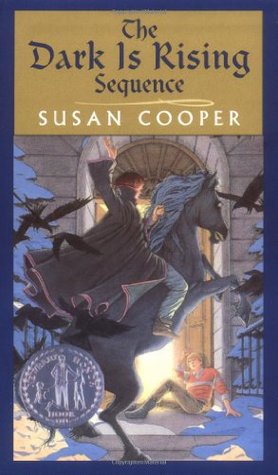

Millions of other readers have met Cooper’s work and never forgotten it. For Max Porter, the series “did more for my imagination, for my vocabulary, for any curiosity or concern I had for Englishness, for history, for listening, than anything I learned at school” it gave him and his brother “a mythology that we could see and feel around us in rural England, and on our windswept holiday weeks in Snowdonia”. I know of many other writers and artists, among them Katherine Rundell and Helen Macdonald, for whom Cooper’s work has also been influential. Such ideas were powerfully formative for me as a writer, and Cooper’s presence is particularly strong in a book I wrote about walking, paths and history called The Old Ways (there’s a significant “Old Way Lane” in The Dark Is Rising). Landscape is a palimpsest upon which ancient stories are both contested and renewed. Places, in the work of all these writers, carry auras and memories they act both archivally and prophetically. Robert Macfarlane, whose sense of landscape ‘as a memory-shifting, time-slipping medium’ was deeply influenced by Cooper’s book.

His young shoulders are soon to bear an immense burden. Will’s life is about to change for ever – for he will become caught up in an ancient battle between the forces of the Light and those of the Dark, which are always strongest at midwinter. Rooks are behaving strangely, dogs are suddenly afraid of Will, a blizzard is coming, and “a shadowy awareness of evil” is building. But in the wintry landscape around, something is very wrong. Inside the house, all is pre-Christmas chaos, baking smells and familiarity. It’s 20 December: the eve of both the winter solstice and the 11th birthday of Will, the youngest of the Stanton children. It opens in the domestic clamour of the Stanton family house, in a quiet English village in the upper Thames valley. A core power of Cooper’s novel lies in its counterpointing of the homely and the unhomely. The eerie lives in the same family of feelings as Freud’s “uncanny”, which in its original German, unheimlich, means “unhomely”. Eeriness thrives in edge-of-the-eye glimpses horror is full-frontal. I read it by torchlight under the bedclothes, not because of parental curfew or power cut, but because that seemed the safest place to read what was, unmistakably, the eeriest novel I’d ever met.Įeriness is different in kind to horror. I first read Susan Cooper’s The Dark Is Rising the summer I turned 13, the year the Berlin Wall came down.


 0 kommentar(er)
0 kommentar(er)
